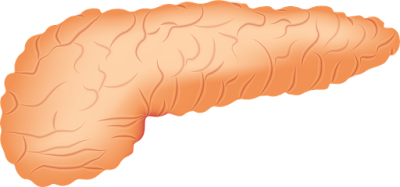Treatment of gastroesophageal reflux disease
Gastroesophageal Reflux - Symptoms and Treatment
Reflux is the backflow of food from the stomach into the esophagus. If it is intermittent, it does not need to worry, but relapses not only cause unpleasant feelings, it can also have a bad effect on our health.
Gastroesophageal reflux disease - symptoms
Reflux usually manifested belching, burning in the esophagus, bitter or sour taste in the mouth, nausea, vomiting, difficulty in swallowing, or feeling as if something was stuck in it. These are the typical symptoms.
It may however happen that problems will not have relation to the gastrointestinal tract, because the backflow of acid reflux disease can result in:
- the respiratory system (e.g., recurrent bronchitis, cough tiring when food particles gets into the trachea - this is called. aspiration pneumonia);
- ENT (hoarseness, changing the timbre of voice, sinusitis, sleep apnea);
- pretending to be heart problems, specifically in coronary artery disease and myocardial infarction (strong burning sensation behind the breastbone, shortness of breath).
How to diagnose gastroesophageal reflux disease?
When tired of us mere symptoms of gastrooesophageal reflux, the doctor put under them once the diagnosis.
To confirm your doctor may order:
- anti-reflux therapy short, so oral medication and a proper diet, and when symptoms persist, it will mean that the doctor put the correct diagnosis and treatment should be continued;
- specialized studies, usually a gastroscopy (front view of the upper section of the digestive tube with a thin so-called. endoscope), sometimes it may also be X-ray, and before it is executed so need to drink, contrast and esophageal pH examined.
Remember! If left untreated, gastroesophageal reflux nuisance can not only our lives, but can also threaten him, because it increases the risk of neoplastic lesions in the upper gastrointestinal tract.
Therefore, you need to start therapy as soon as possible, which will move us to the spectrum of the disease, and besides, to gain a better mood and enjoyment of food.
Therapy is conducted in 3 ways:
- proper diet - gastrooesophageal reflux promotes overeating and overweight . So let's shed excess pounds and eat often (5-6 times a day), but small portions, and this will in some cases eliminate the symptoms. You also have to give up the ingredients that reduce esophageal sphincter tension and products which enhance the production of hydrochloric acid ( alcohol, sodas and caffeine, acidic foods, oily and spicy foods, tomatoes, onions);
- drugs - most often called . proton pump inhibitors. These are oral (tablets, syrups, suspensions), which inhibit gastric acid secretion and reduce inflammation in the esophagus. They can be taken for many years. In small doses available without a prescription;
- surgery ( most commonly called. fundoplication ) - the procedure is performed laparoscope. The surgeon through a small incision in the skin of the tool is introduced, with which the fundus is wrapped around the esophagus sphincter. This causes the gain and resolution of complaints.
Gastroesophageal reflux disease - this avoid
- cigarette smoking-are the cause relaxation of the esophageal sphincter muscle, further increase intra-abdominal pressure, and this causes stomach trouble;
- bending after a meal, wearing tight clothes, squeezing the bar - raises the pressure in the abdominal cavity;
- sleeping flat on his back - in this position increases the likelihood of regression of gastric contents. Well sleeping use a large pillows, headboard or mattress, the top honor will be able to be set at an angle of 10-20 degrees;
- eating before bedtime - it increases reflux, so it's going to bed no earlier than three hours after a meal.


Comments
Post a Comment